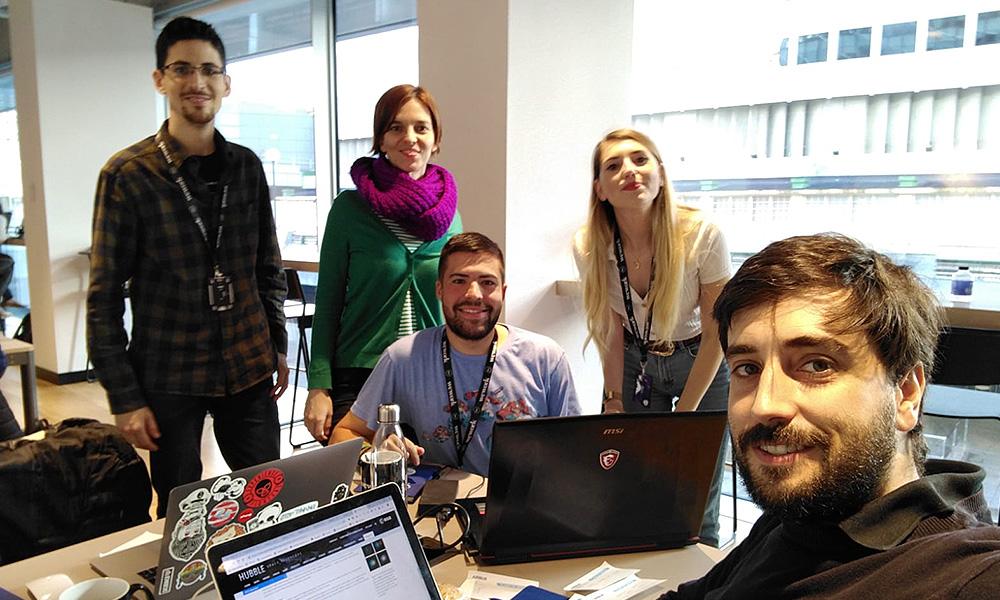NASA awards a Spanish team with participation from the UC3M in the Space Apps Challenge
2/25/19
A Spanish team, in which researcher Iñaki Úcar from the Universidad Carlos III de Madrid (UC3M) and the UC3M-Santander Big Data Institute is taking part, has won the Space Apps Challenge, a 48-hour international hackathon organised by NASA (National Aeronautics and Space Administration).

Researcher Iñaki Úcar (standing on the left in the photo), from the UC3M-Santander Big Data Institute, alongside the rest of the team members.
The Space Apps Challenge is a problem-solving project that tries to boost the development of applications using open data from NASA revolving around 20 big challenges. The last edition of this competition was held last October, with the participation of over 18,000 people in 200 events all over the world, but the decision for the winning teams was made last week. The prize consists of an invitation to the Kennedy Space Center facilities in Florida (USA).
The winning team of Space Apps 2018 was Pillars of Creation, made up of post-doctorate researcher from the UC3M-Santander Big Data Institute, Iñaki Úcar, along with four Spanish professionals: Almudena M. Castro, UX/UI designer at MásMóvil; José Luis Martín-Oar, services designer at BBVA; Juan Martínez, ILS engineer at Airbus; and Rosa Narváez, UX/UI designer at Propelland. The project has been awarded the Best Use of Science award, for the solution that “makes the best and most valid use of science and/or scientific method”.
“In the beginning, we couldn’t believe it. In the end, you start to realise that, among so many projects in the world, it is really difficult to stand out; so it was amazing to achieve this recognition from an institution like NASA. What’s more, we are proud and so excited about the fact that, out of the six possible awards, we’ve won the one for best use of science”, comments Iñaki Úcar, who is a Doctor in Telematics at the UC3M.
Gamification and citizen science
Their proposal, named Galaxy Quest, consisted of the design of a space exploration game for mobile devices that uses gamification and the concept “citizen science” to help process the large amounts of data that the Hubble space telescope produces every day. On the one hand, the application’s points system provides the user with incentives to improve the experience of the game; and on the other hand, it ensures that the data collected are valid for NASA and help the neural networks of Artificial Intelligence to improve automation in the future when classifying images from the universe.
“Galaxy Quest is a game that is supposed to be addictive, easy to play and that at the same uses science to help NASA manage data”, explains Iñaki Úcar. Although in the framework of this competition, the manner of explaining and disseminating the project was very important. “NASA put a lot of emphasis on knowing how to sell the idea. The team were very in tune with each other and whilst some were focusing on the scientific part, others were working on explaining it well”, he adds.
For more information: https://2018.spaceappschallenge.org